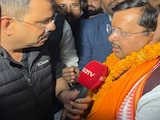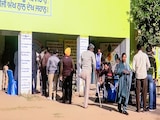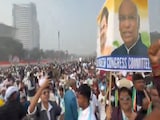In July 2005, the US Department of State declassified taped conversations between former US President Richard Nixon and Secretary of State Henry Kissinger shortly before the India-Pakistan war in 1971 war that would lead to the birth of Bangladesh.
In the tapes, the two are heard talking about former Prime Minister Indira Gandhi shortly after a meeting with her. During the heated conversation, Nixon refers to Mrs Gandhi as an "old witch". Kissinger calls her a "b***c" and says the "Indians are bastards anyway". The tapes also brought to light Nixon's derogatory remarks against Indian women and his description of Indians as "most sexless" and "pathetic".
Soon after the remarks became public, Kissinger said he regretted his remarks and that he respected Mrs Gandhi.
"[The foul language has] to be seen in the context of a cold war atmosphere 35 years ago, when I had paid a secret visit to China when President Nixon had not yet been there and India had made a kind of an alliance with the Soviet Union," he told NDTV in an interview.
Despite the damage-control attempt, the tapes became an indelible part of Kissinger's legacy, as his disregard for human rights abuses in then East Pakistan.
Why US Backed Pakistan During 1971 War
The Nixon administration was concerned about the spread of Soviet influence in the Indian subcontinent, particularly amid India's growing ties with USSR. To counter this, the US started reaching out to China, which had tensions with India and USSR. This outreach was launched through Pakistan and the US feared that responding to the atrocities in East Pakistan would block this outreach.
Kissinger, in an interview to The Atlantic in 2016, said that by the time the Bangladeshi crisis began, the US and China were on the verge of a breakthrough.
"These exchanges were conducted through Pakistan, which emerged as the interlocutor most acceptable to Beijing and Washington. The Bangladesh crisis, in its essence, was an attempt of the Bengali part of Pakistan to achieve independence. Pakistan resisted with extreme violence and gross human-rights violations," Kissinger said. "To condemn these violations publicly would have destroyed the Pakistani channel, which would be needed for months to complete the opening to China, which indeed was launched from Pakistan," he said.
The diplomat, a giant in statecraft and realpolitik, died yesterday. He was 100. In The Atlantic interview, he had said human rights are an "essential goal" of American policy, "But so is national security. In some situations, no choice between them is required, making the moral issue relatively simple," he said.
"But there are situations in which a conflict arises, specifically when a country important to American security or international order engages in conduct contrary to our values, requiring the president to make a series of judgments: about the magnitude of the conflict; the resources available to remedy it; the impact of our actions on its foreseeable evolution; and finally, if the president identifies a path forward, the willingness of the American public to maintain that effort," Kissinger said.
The 1971 War
Despite US attempts to "scare off" Indians, to the extent of chalking out a plan with China and deploying an aircraft carrier in the Indian Ocean, India routed Pakistan in the 1971 war and Bangladesh was born. To counter the US move, India had asked Soviet Russia to activate a provision of the Indo-Soviet Security Agreement, according to which an attack on India would be considered an attack on Russia. Accordingly, Russia had sent one of its fleets to the Bay of Bengal.
Responding to the US citing its pacts with Pakistan, Mrs Gandhi had then said the treaties were intended to "contain Communism... not to fight democracy, or to suppress justice or the voice of the oppressed".
Ironically, a day after Bangladesh was liberated, Kissinger had told Nixon that he had managed to "save West Pakistan," according to documents declassified later.















